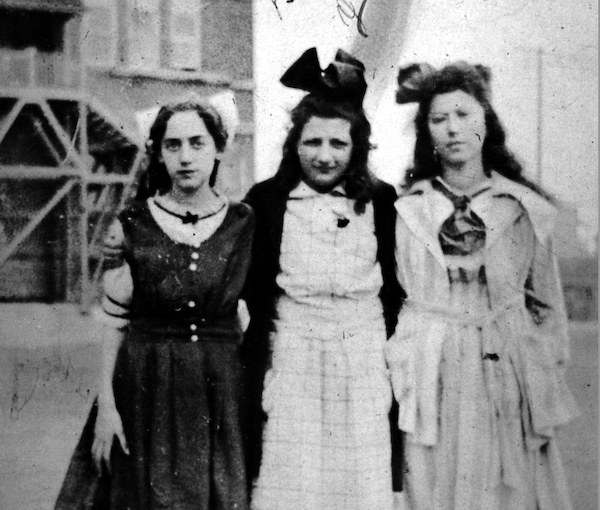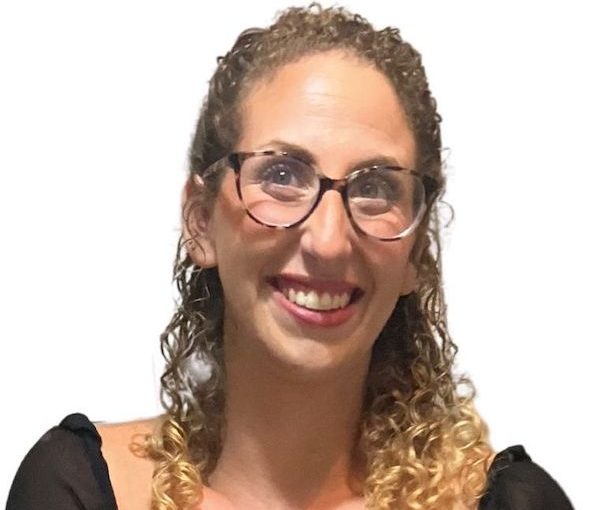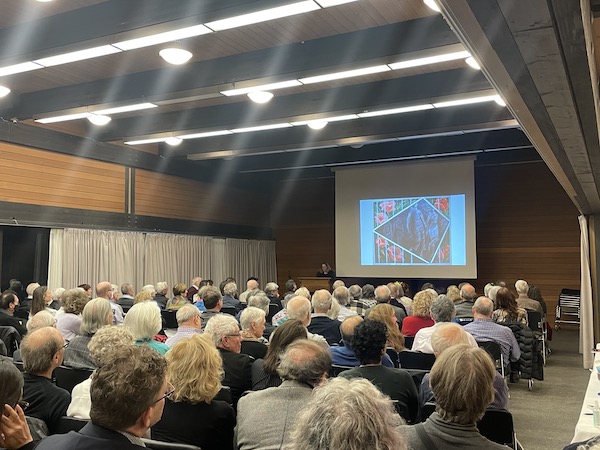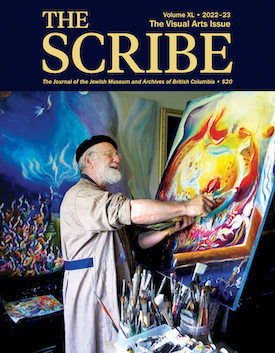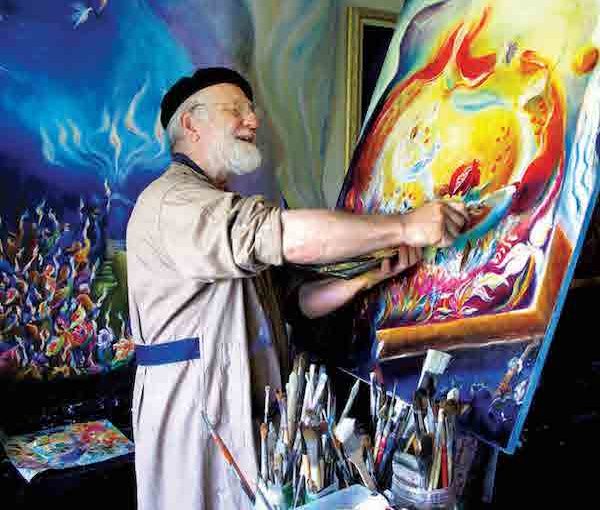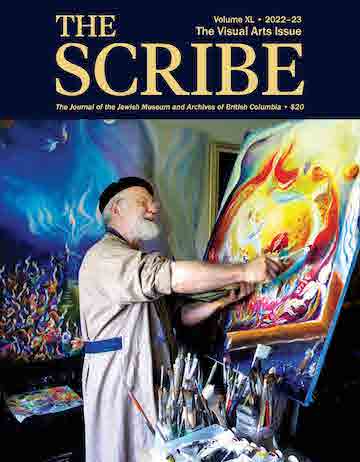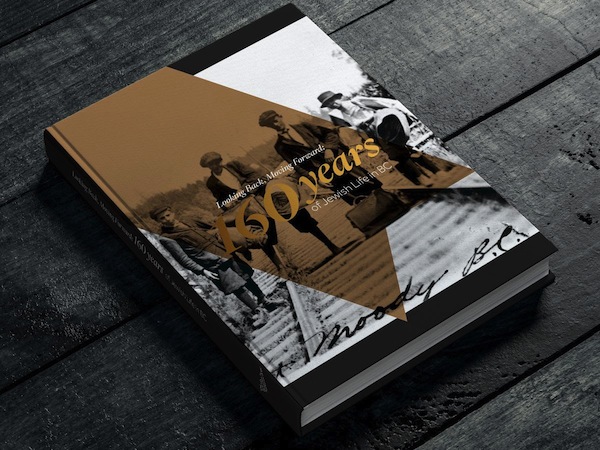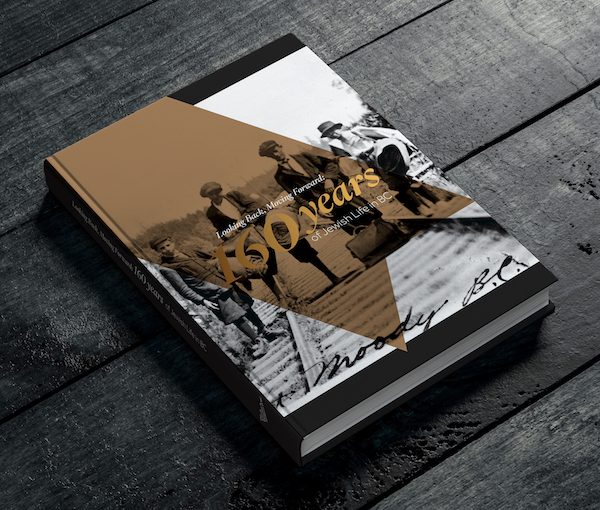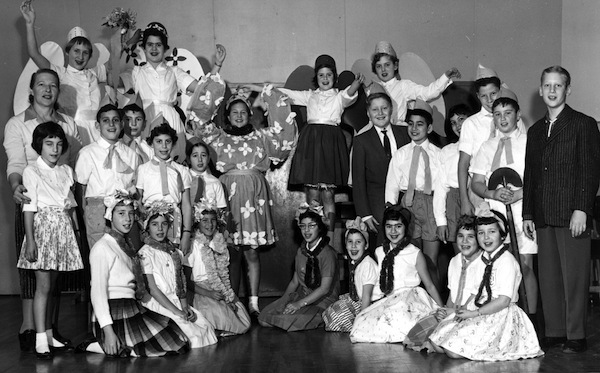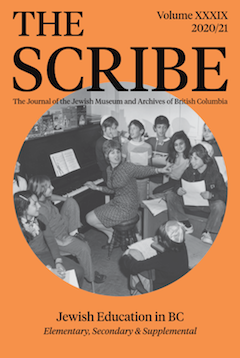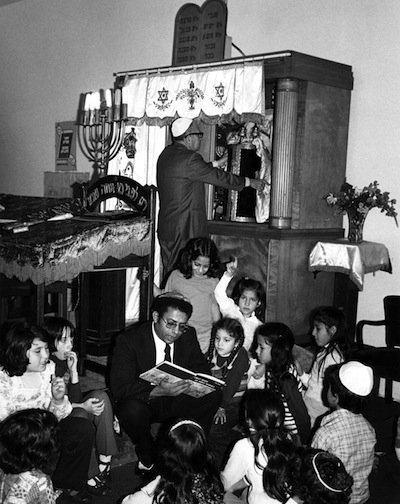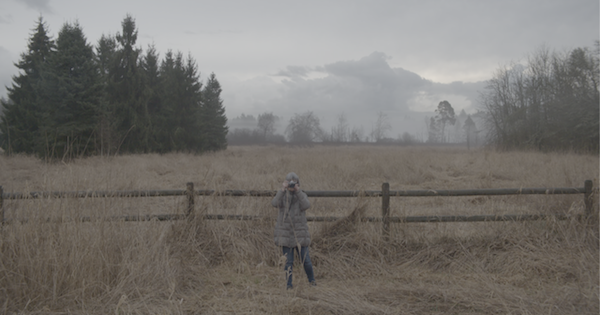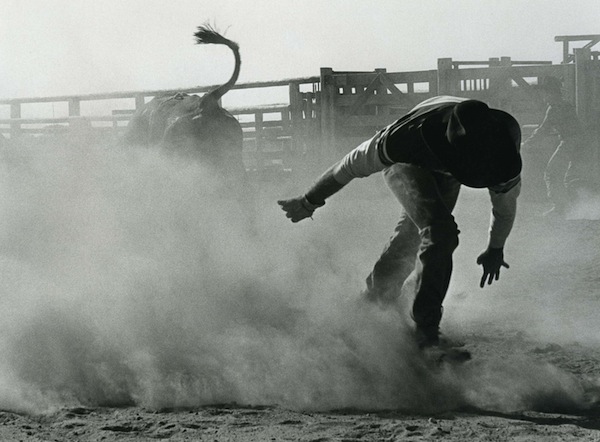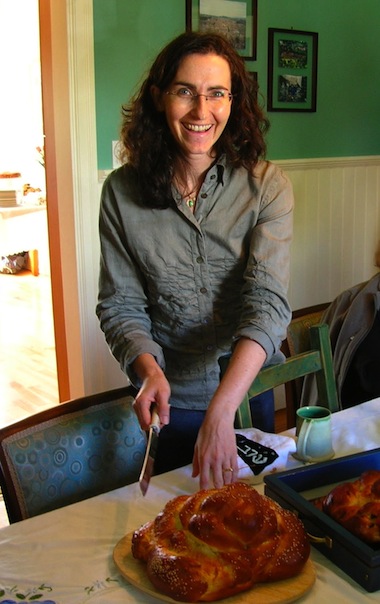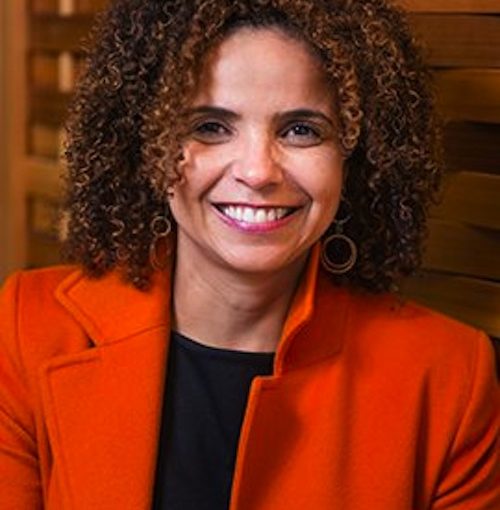School girls, Lord Strathcona School, 1915. The JMABC Walking Tours take participants on a journey through the girls’ Strathcona neighbourhood, as well as to the Mountain View Jewish Cemetery, where many of the community’s pioneers are buried. (JMABC L.00172)
This summer, the Jewish Museum and Archives of British Columbia is once again offering opportunities for time travel. JMABC Walking Tours are back, taking guests on an immersive journey into Vancouver’s Jewish past. All you need to bring for the journey is your curiosity – and a hat and water!
The Jewish presence in British Columbia goes back 166 years, to the days before Vancouver was established as a city. Early Jewish immigrants arrived in the region during the 1850s Klondike Gold Rush, along with masses of other hopefuls seeking fortune in the wilderness of the BC Interior. Unlike their contemporaries, early Jewish gold-seekers did not head to the mines. Instead, they opted to sell supplies to those seeking gold. In the mines, there was no guarantee that gold would be found; in the shops, even unsuccessful miners needed provisions, thus guaranteeing an income for the shopkeepers.
The earliest Jewish community in the province was based in Victoria. It was primarily made up of businessmen and their families, who had profited during the gold boom. As the rush petered out, Jewish-owned outfitter shops transformed into general stores or niche market suppliers that specialized in items such as stoves, fabric, dry goods and other essentials, updating their stock as necessary to meet the changing needs of the times. When Vancouver was officially established in 1867, Jewish storefronts in Gastown were among some of the earliest establishments along the main thoroughfare of Water Street.
Eventually, attention in the region turned away from mercantile pursuits and towards the burgeoning real estate market. With the completion of the CPR and the dedication of Vancouver as its terminus station, the railway company began selling off large packages of land that had been taken from Indigenous communities. Real estate investors jumped at the opportunity, and Jewish businessmen were among some of the first investors in what would later become the residential and commercial neighbourhoods of Downtown Vancouver. As the city expanded, surveyor groups purchased large swaths of the forested area to the south, which now comprises the bulk of the City of Vancouver. During this time of growth, Jewish real estate moguls were instrumental in securing space for a Jewish section within the then-newly established Mountain View Cemetery.
Around this time, the whispers of two core Jewish neighbourhoods sprang up: the West End, where those with more resources and status would settle; and the East Side, where immigrants and other lower-income families would congregate. The latter neighbourhood, Strathcona, was the closest residential area to the hub of the city. While the Jewish community eventually moved towards Fairview Slopes and Oak Street in the 1950s, the Strathcona neighbourhood continues to stand as a testament to the historic challenges and achievements of British Columbia’s early immigrants.
The JMABC walking tours seek to engage audiences in the remarkable structures and values that have contributed to Jewish life here over its history. Each tour introduces participants to the iconic characters, stories and cultural phenomena that formed the Jewish community’s foundations, and it is hoped that participants emerge from each experience with greater insight and new perspectives, inspired to continue building the legacy of the community in Vancouver.
Jewish Strathcona: The Architecture of Community-Building
(JMABC Walking Tours July 7, July 21 and Aug. 18, at 11 a.m.)
Since the city’s early beginnings, Vancouver’s East Side neighbourhhood of Strathcona has been home to multiple waves of immigrant communities. From the 1880s through the mid-20th century, Jewish immigrants were among the ethnic minorities that claimed these streets as home. As early as the 1850s, these Jewish pioneers were establishing essential services and buildings to accommodate the vision of a thriving Jewish community.
The JMABC tour of Strathcona highlights the themes of social welfare, family and tradition as cornerstones of Jewish communal development. The tour follows the journey of early immigrants to this area and the paths they took to found and build communal structures and social groups. Through the magic of storytelling, participants are transported back in time and immersed in the experiences of those who laid the groundwork for the expansive Metro Vancouver Jewish community we have today.
Mountain View Jewish Cemetery: Exploring Common Grounds
(JMABC Walking Tours July 14 and Aug. 4, 3 p.m.)
Despite its context and location, this tour is all about life! Like its sister tour in Strathcona, this experience transports audiences back in time to get to know the once-lively personalities of the people buried in the Mountain View Jewish Cemetery. Tour participants are encouraged to engage with the space and explore the unique aspects of the surroundings, looking beyond the façades of stone and dirt to understand the deeper nuances of this historic site. Using an audience-guided model, this tour can be repeated multiple times, with variable content and direction, stemming from three focal themes: the people, the stones and the stories. Each area of focus gives its audience new perspectives on the significance and role of a cemetery as a foundational pillar of Jewish community.
* * *
To join a tour or to book a private one, contact the JMABC office at 604-257-5199 or [email protected].
– Courtesy Jewish Museum and Archives of British Columbia

